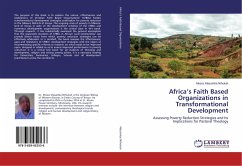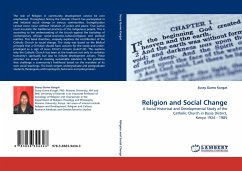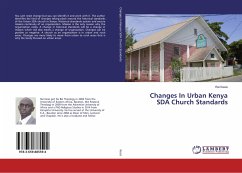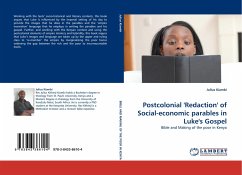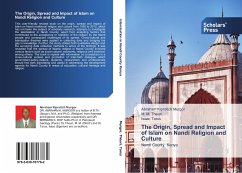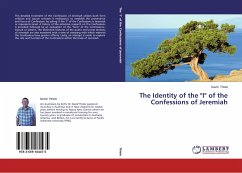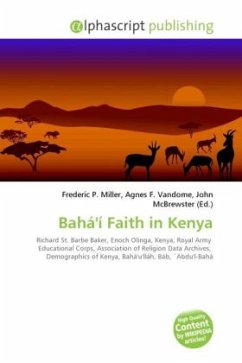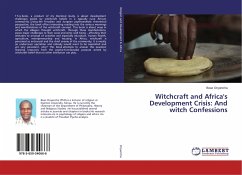
Witchcraft and Africa's Development Crisis: And witch Confessions
Versandkostenfrei!
Versandfertig in 6-10 Tagen
41,99 €
inkl. MwSt.

PAYBACK Punkte
21 °P sammeln!
This book, a product of my Doctoral study, is about development challenges posed by witchcraft beliefs in a typically rural African community. Using the Freudian and Jungean psychoanalytic theoretical perspective, the book offers interesting reading into the various meanings and manifestations of the witchcraft concept. This book is about ways in which the villagers thought witchcraft, through these manifestations, poses major challenges to their socio-economic well being , affecting their attitudes to arrange of activities and especially education, human health, agriculture, entrepreneurship ...
This book, a product of my Doctoral study, is about development challenges posed by witchcraft beliefs in a typically rural African community. Using the Freudian and Jungean psychoanalytic theoretical perspective, the book offers interesting reading into the various meanings and manifestations of the witchcraft concept. This book is about ways in which the villagers thought witchcraft, through these manifestations, poses major challenges to their socio-economic well being , affecting their attitudes to arrange of activities and especially education, human health, agriculture, entrepreneurship and housing. In Africa, witchcraft is perceived as anti-social and the chief enemy of the community. It is mostly an undercover operation and nobody would want to be associated and yet very persistent, why? This book attempts to answer this question drawing resources from the psycho-functionalist purpose served by witchcraft belief that no other institution can play.



